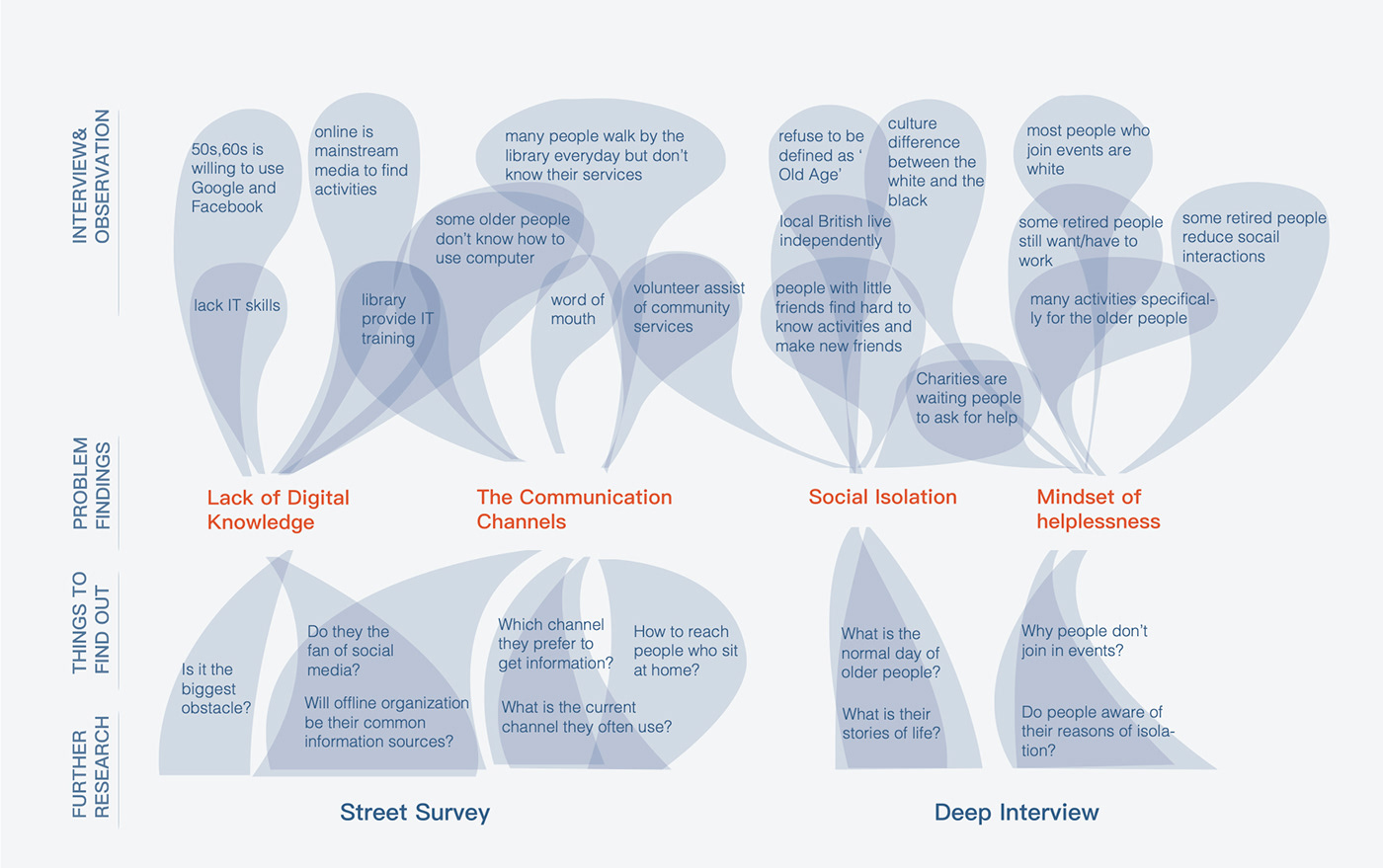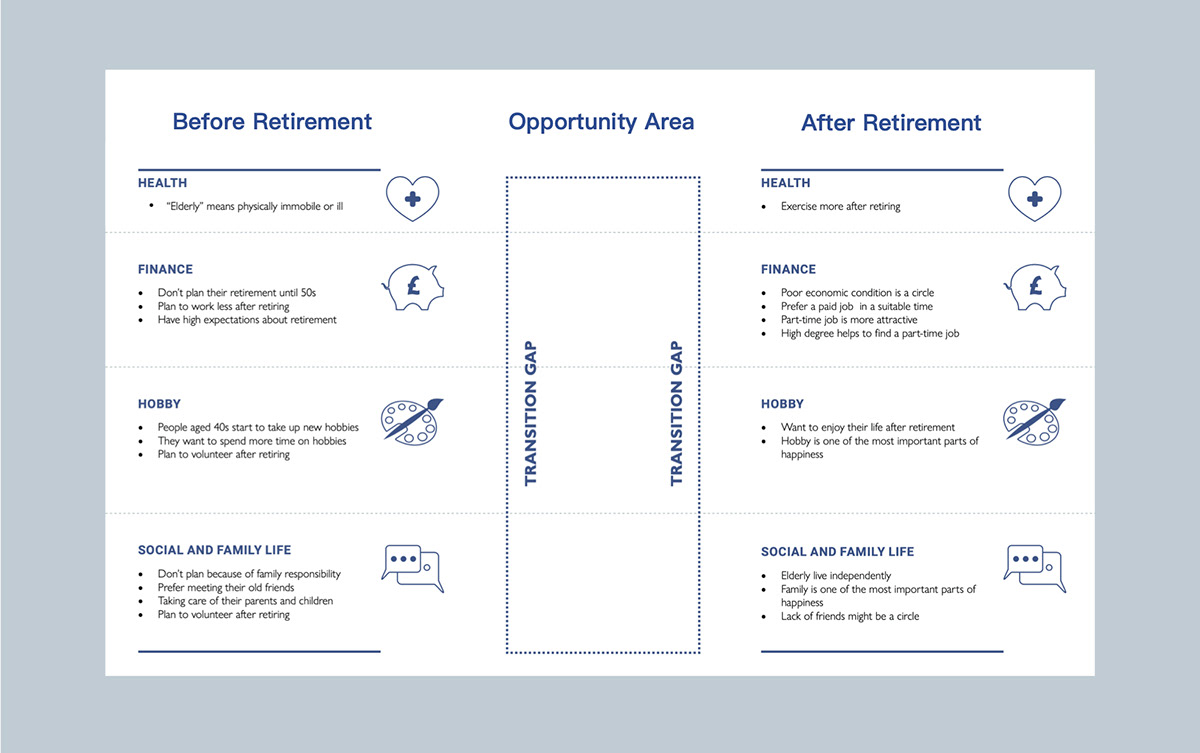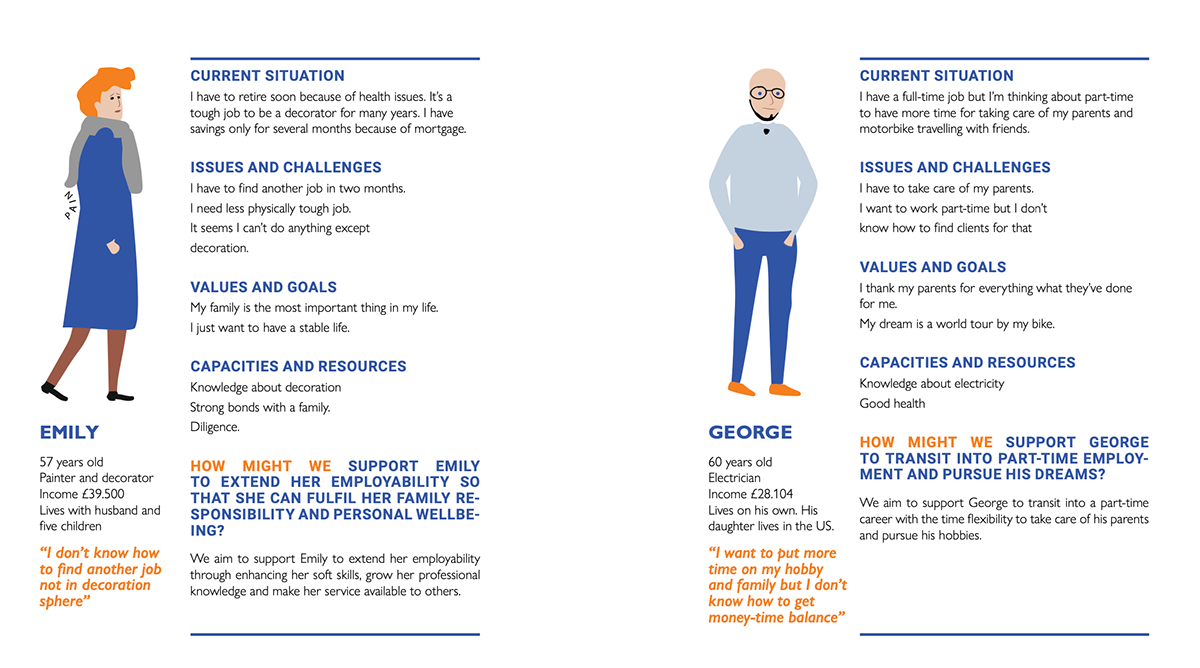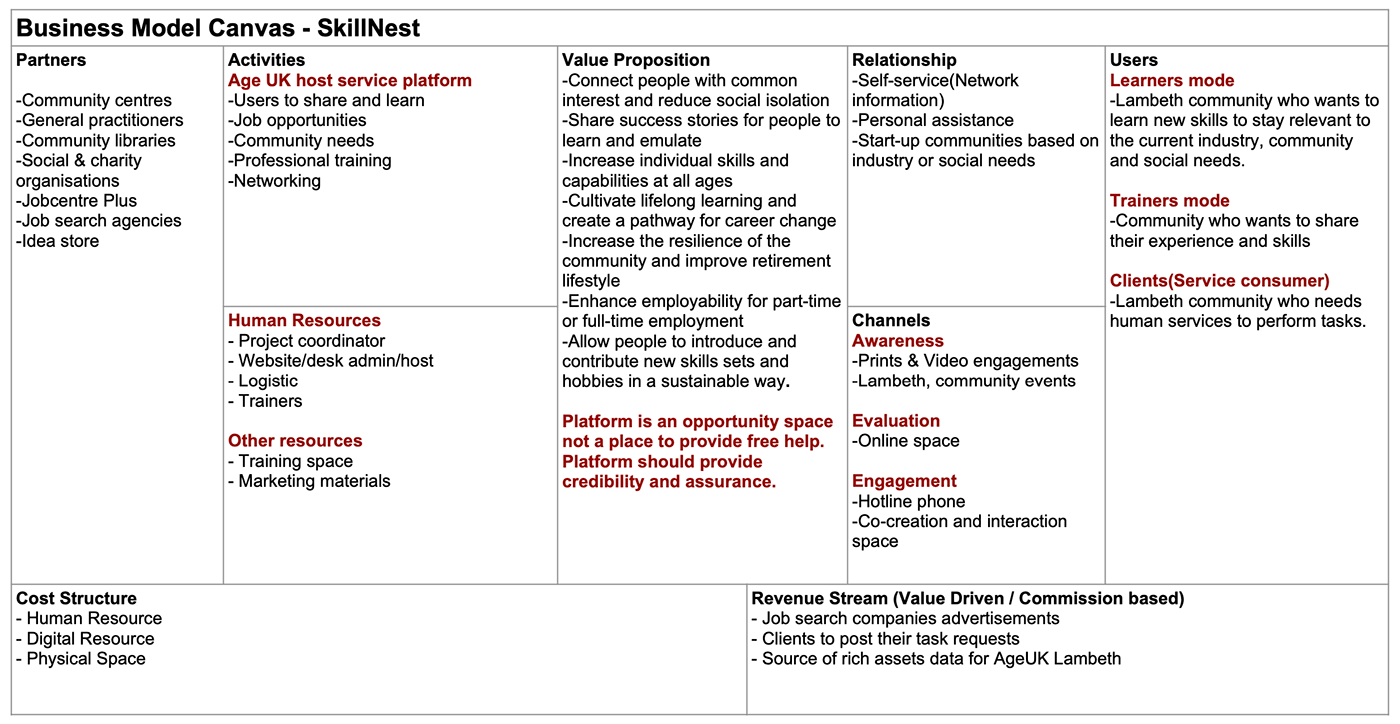

How might we motivate physical worker/community in Lambeth to learn and share their skills and knowledge so that they can be more resilience in ageing?
In this project, we cooperation with Age UK Lambeth, it is an independent local charity in Lambeth offering support and services for older people. They offer a range of services focusing on Care and Support to respond to the needs of the older people in Lambeth.
The aim of this project is to identify new areas of opportunities to build resilience in the current ageing population.
We parachuted ourselves into Norwood to understand the neighbourhood and the lifestyle of the residents living there. The objective is to immerse into the local environment and interact with the community. We journeyed approximately 7 kilometres, visited 12 exciting places and talked to many wonderful individuals.



To understand why are there such concerns identified by the local community, we had to seek further information from other sources. We started to collect secondary research data on Lambeth demographic, social communities, IT literacy, education qualifications, health conditions, disabilities, employment and charity and social organizations. This is to provide us with a macro perspective of the Lambeth community.
With the various data and information collected, we conducted an internal retrospective enquiry to connect the primary and secondary research materials.


People’s values are rather diverse. Their values shape their mindset, social interaction and connection with their family and community. There is a need to dive deeper into this area to gather more understanding and insights.
We designed our in-depth interview questions in a semi-structured way to understand the different perspectives of our potential users; their daily routine, social group, interests and hobbies, work and experience, ideal lifestyle, the meaning of being elderly and their happiness level.




Much preconceived bias towards ageing people is challenged when we have a better understanding of them, specifically in the definition of age and their interest in voluntary events and part-time jobs. Therefore, we conducted several co-design sessions with stakeholders to understand people's desire, motivation, expectation and preparation of retirement. Including “want to do&have to do” probe, the Ideal lifestyle game, retirepoly game.
The insights show that finance, health, hobbies and personal relationships are the key factors in retirement. There seems to be a disparity between the pre-retirement and retirement lifestyle. This presented a possible opportunity to further narrow down on this conception.

The result of the co-design sessions also showed that people who are less educated or physical workers seem to have more difficulties in planning for their retirement.
The multiple insights direct us to this demographic group who will require more support and will benefit from our service intervention.
Their challenges may include professional networking, digital knowledge and soft skills. Physical workers, unlike office executives, require physical strength to perform their daily work; fragility and fatigue are more likely to be issues they will face at an older age. Therefore, we pivoted our focus on employment longevity among physical workers and formulated two personas to represent our target audience.


How might we motivate physical worker/community in Lambeth to learn and share their skills and knowledge so that they can be more resilience in ageing?



A table was created to understand the system integration and the value proposition between the main stakeholders which involved the mentors, users, hiring company, Lambeth community and charity organizations. The diagram listed out the motivations, communication channels, value proposition and key activities for the different stakeholders. This analysis provides the scaffolding for our service concept and business model canvas.

A quick roleplay of the service concept is carried out to physically understand how each actor and stakeholder will contribute to the service concept. After that, we created a low fidelity model to bring out the tangibility of the service concept to quickly test out its viability on the field. The purpose is to understand the motivation factors, key concerns and interest level from the target audience to play out the reality of the idea.
Our online community SkillNest
helps physical workers that lives in Lambeth area in the UK
who want to transit to a less physical work before retirement
by enhancing employability
and enable to build professional network
through a platform of knowledge and skills exchange
Skills-Nest is an online community for people to learn and share their skills, knowledge and hobbies. The focus will be connecting people (our target audience with other people) by learning and sharing their interests and grow their social network.
Through this platform, members can register as a mentor or mentee online and attend free offline introductory courses hosted by other members on various topic including gardening, music, reading, cooking, pottery, CV writing and more. The website provides audio version for people with reading disorder or difficulty. We try to improve accessibility to be more user-friendly.
The promotion channels include posters and brochures. The elderly can get access to our service through the help of staff in the local libraries and GP clinics, where older people drop in frequently.


The ecosystem map represents the key roles of the interaction of each key stakeholder to that have an influence on the successful implementation of the service platform. It provides the foundation building block to initiate the service concept. Further integration and testing will still be necessary.



Thanks for watching!






